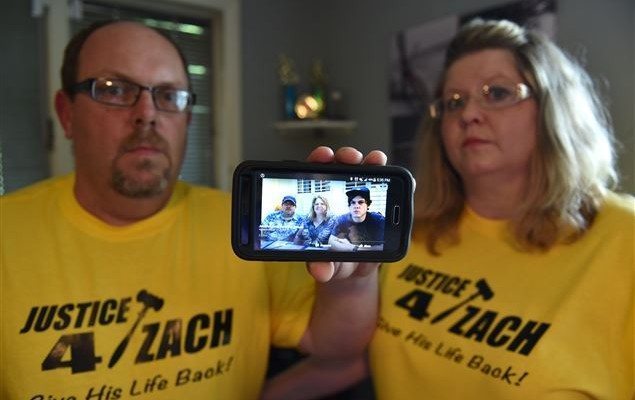 Image courtesy of [Day Donaldson via Flickr]
Image courtesy of [Day Donaldson via Flickr]
News
Young Man Sentenced to Years on the Sex Offender List May Get a Second Chance
Zach Anderson is the 19-year-old young man whose harsh sentence received national backlash after he had sex with a 14-year-old girl who told him she was 17. His sentence was just vacated by a judge, and a new sentence will be given. But while Anderson may now be getting a gentler sentence, his plight still says a lot about the state of the sex offender laws in our country.
Anderson, who is a native of Indiana, met the unnamed 14-year-old girl through a hookup app called “Hot or Not.” Much like other, perhaps more widely known hookup apps like “Tinder” it allows users to represent themselves in really however they see fit–there’s no age verification involved. So, Anderson, who was 19 at the time, met a girl who portrayed herself as 17. She lived just 20 miles away across state lines in Michigan. They met, and had “consensual” sex, despite the fact that she was under the age of consent.
It was at this point that Anderson was arrested and pleaded guilty to misdemeanor criminal sexual conduct. But the sentence he received was exceedingly harsh. Anderson was sentenced to 90 days in jail, as well as five years on probation. He also would be on the Indiana and Michigan sex offender registries for 25 years–a command that comes with a sentence of its own. According to CBS News,
Anderson also faces 61 conditions including restrictions that bar him from going online, dining at restaurants that serve alcohol and even living at home, because he has a 15-year-old brother.
As a result of his sentence, he also had to withdraw from Ivy University, where he was planning on majoring in computer science. The sex offender registry rules have prohibitions on using computers that would have made it impossible for him to complete his studies.
The harshness of these conditions resulted in a public outcry. Many onlookers viewed Anderson’s plight as unfortunate–after all, he wasn’t the one who lied about his age. In fact, both the girl he had sex with, as well as her mother, asked the judge for leniency.
But the judge in his case, Dennis Wiley, claimed that Anderson should have been able to tell that the girl was younger than she said she was. He wrote in his sentencing about how his decision was based in part on “the Court’s observation of the victim at sentencing, who appeared to be extremely young in development and maturity…It should have been apparent to a casual observer that she was clearly underage and vulnerable.” He also appeared to take issue with the fact that the two met online, and offered what can be viewed as an overall indictment of so-called “hookup culture.” Judge Wiley stated during the hearing: “That seems to be part of our culture now. Meet, have sex, hook up, sayonara. Totally inappropriate behavior. There is no excuse for this whatsoever.” But regardless of Judge Wiley’s personal feelings, “our culture” wasn’t on trial–Anderson was, and he clearly paid a hefty price for what the judge believed.
However, that sentence was just vacated by Judge Wiley, although not because of its harshness. Instead, it was based on a procedural issue with the prosecutor, Assistant Prosecutor Gerald Vigansky, and the comments he made at Anderson’s sentencing about the sentences Wiley gave in similar cases. As a result, a new judge will re-sentence Anderson. While there’s no guarantee that the new sentence will be less harsh, Anderson’s family sees it a step in the right direction. After all, given Anderson’s lack of history as a sex offender, and the other particulars of the case, it’s hard to imagine that such a stringent sentence will be replicated.
Regardless of what happens in Anderson’s case, sex offender laws in the United States are beginning to fall under increasing scrutiny. The idea that a young man could be placed on the sex offender registry for 25 years, because of an act of consensual sex during which he was lied to, is hard to justify. But it’s certainly not the only case in which these laws have been applied unjustly. As former Judge William Buhl, who presided in a town near Anderson’s told CNN:
If we caught every teenager that violated our current law we’d lock up 30 or 40 percent of the high school. We’re kidding ourselves.








Comments